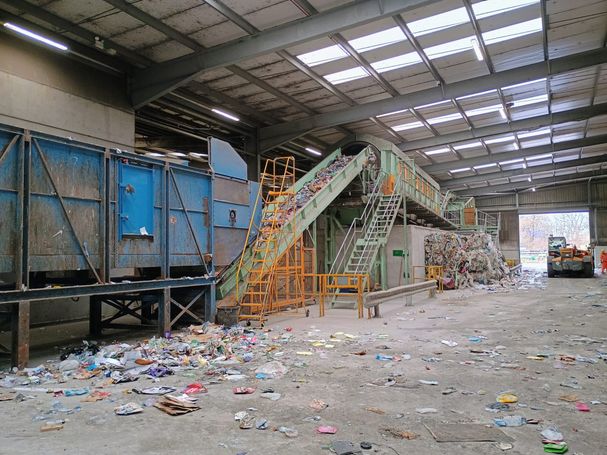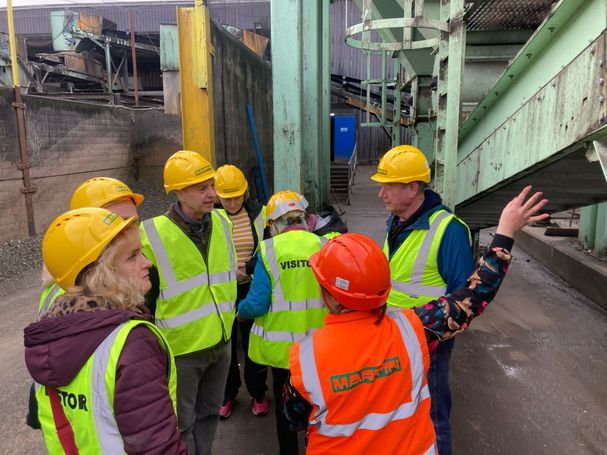Visit to HW Martin
February 2025
By Jennie Reid
A group from Transition Crich recently visited the HW Martin Materials Recovery Facility in Alfreton, to discover more about what happens to the materials collected from our recycling bins.
We were impressed to learn that none of what is collected will end up being landfilled; as much as possible is recycled, leaving a residual of only 12-15%. This residual is then sent onto a further facility to recover the energy from the waste. We learnt that at present only around 3% of the recovered materials are exported, and these are then regulated to ensure these materials do not then end up being landfilled.
In order to recover the highest grade of recycled material (to obtain the highest re-sale value) it is crucial to keep the level of contamination to a minimum. Contamination can occur when unsuitable items are put in the recycling bin, or through the recyclables not being clean enough which can in turn lead to contamination of other items.


Thus, to ensure the highest recovery rate, we were instructed on three steps to assist the process:
- Do not put hazardous materials in the recycling bin
- E.g. batteries, sharps boxes, gas cylinders, vapes, soda stream bottles
- These items must be removed at the start of the process by hand picking, which is costly and slows the process down
- Ensure materials are sufficiently clean
- If there is too much residual food or product remaining it can stick to other items, which prevents them from being recycled
- An example of this would be a pizza box. The advice was to tear the box and deposit any cardboard contaminated with food waste in the waste bin.
- This is especially important as some of the recovered recyclables are exported for further processing. These loads are inspected by the Environment Agency and are rejected if it is found they are contaminated with food waste.
- Put tops back onto plastic bottles, after rinsing.
- If the tops are separate, their size means they can end up mixed in with other separated material types causing contamination.
We were given a great tour around the site by Inga, their Operations Manager, who summed it up by explaining we can help them to maximise their recovery efficiency by ‘Recycling Clever’.
We are arranging a further visit on a Wednesday during working hours in April 2025. If you would like to join us, please email Ade transitioncrich@gmail.com

We need your consent to load the translations
We use a third-party service to translate the website content that may collect data about your activity. Please review the details in the privacy policy and accept the service to view the translations.










